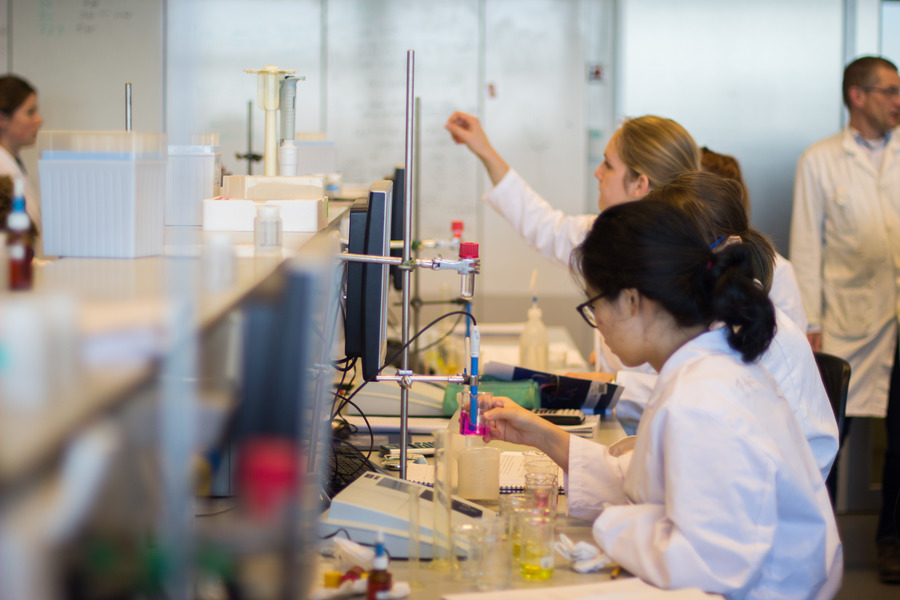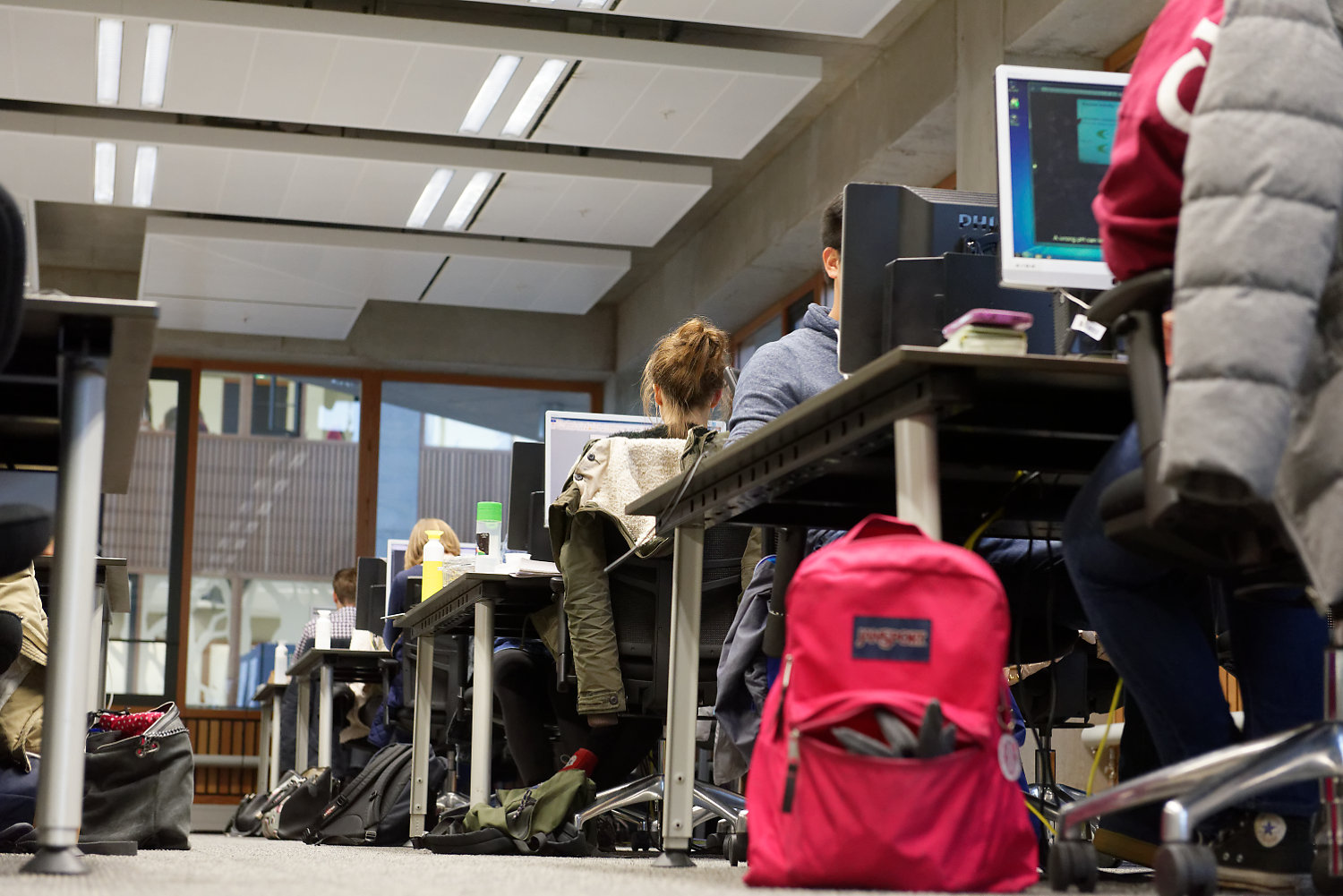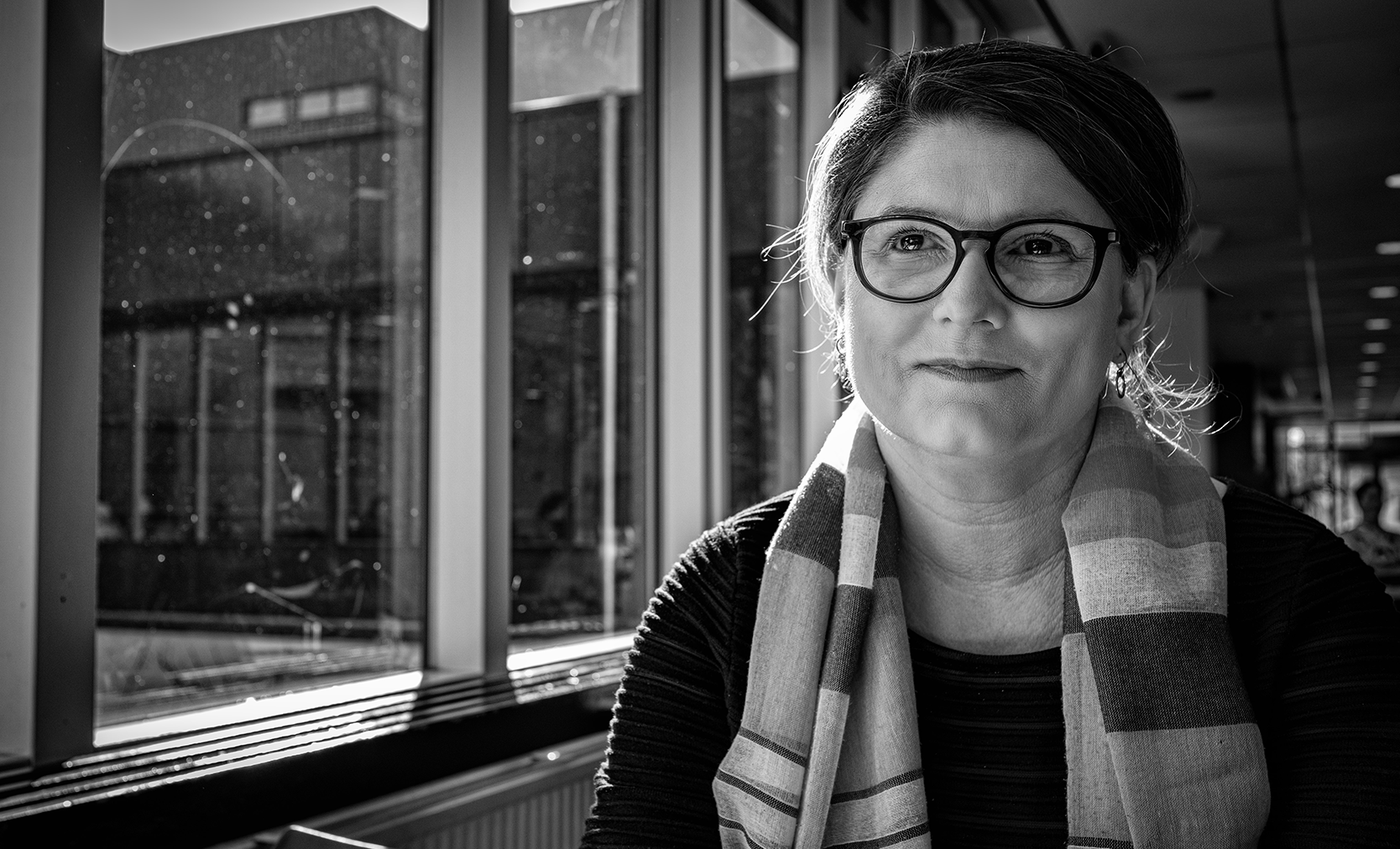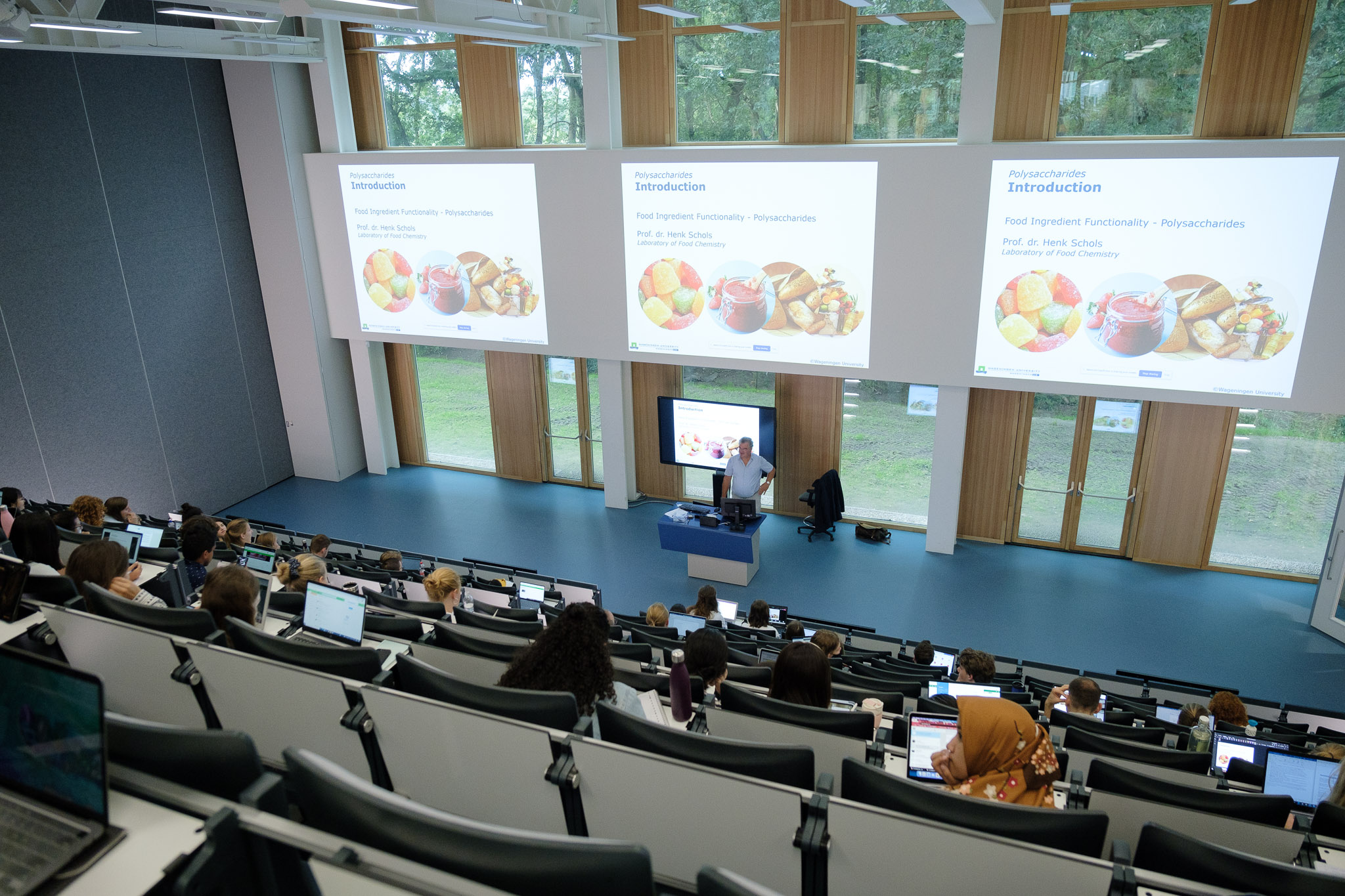Maastricht and Utrecht also have more women than men starting science degrees, at 56 and 54 per cent respectively. Men are still very much in the majority in the intake at Eindhoven, Twente and Delft, with women accounting for 28, 28 and 31 per cent respectively.
Nationally, men make up 57 per cent of the intake and women 43 per cent, according to the Techniekpact monitor for 2023 (intake numbers for September 2022). At the bottom of this article, a list of which Wageningen degree programmes count as science degrees for the monitor, is included.
Rector Arthur Mol is pleased more and more women are opting for science degrees. He has no worries about the intake of male students. ‘If the ratio got really extreme, we could start thinking about how to encourage more men to choose a science degree, but I don’t see any need for that at the moment.’
Female bastion?
Other Wageningen degrees too show a difference in preferences between men and women. For example, last September 116 women started the Food Technology Master’s compared with 58 men; that means two out of every three students are female. The difference is even bigger in the Animal Sciences Bachelor’s, with 108 women versus 35 men. Another degree with a big difference is Nutrition & Health, with 101 women and 27 men. But more men than women started Bachelor’s degrees in Forest & Nature Conservation (59 versus 39) and Agrotechnology (25 versus 7).
All these figures are for last academic year. It’s difficult to say anything much yet about this year’s intake. A slight increase overall was expected based on preliminary registrations, but the AID registrations suggest stable numbers or even a slight fall is more likely. The definitive intake numbers will be available in October.
What is qualifies as science degree?
The following programs are counted as science and technology studies in the monitor:
Bèta Natural and Technology
- m data science for food and health
- m metropolitan analysis, design and engineering (joint degree)
- m water technology (joint degree)
Bèta >50%
- b agrotechnologie
- b animal sciences
- b biologie
- b biotechnologie
- b bos- en natuurbeheer
- b environmental sciences
- b food technology
- b international land and water management
- b landschapsarchitectuur en ruimtelijke planning
- b moleculaire levenswetenschappen
- b plantenwetenschappen
- b soil, water, atmosphere
- b voeding en gezondheid
- m animal sciences
- m aquaculture and marine resource management
- m biobased sciences
- m bioinformatics
- m biology
- m biosystems engineering
- m biotechnology
- m climate studies
- m earth and environment
- m environmental sciences
- m food safety
- m food technology
- m forest and nature conservation
- m geo-information science
- m international land and water management
- m landscape architecture and planning
- m molecular life sciences
- m nutrition and health
- m organic agriculture
- m plant biotechnology
- m plant sciences
The following programs are not counted as science and technology:
Bèta <50%
- b bedrijfs- en consumentenwetenschappen
- b communicatie en life sciences
- b economie en beleid
- b gezondheid en maatschappij
- b internationale ontwikkelingsstudies
- m development and rural innovation
- m food quality management
- m international development studies
- m management, economics and consumer studies
- m tourism, society and environment
- m urban environmental management
Other Higher Education incl. Teacher Training Programs:
- b tourism (joint degree)
- m communication, health and life sciences

 Photo Marte Hofsteenge
Photo Marte Hofsteenge 

